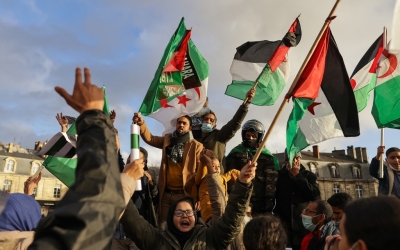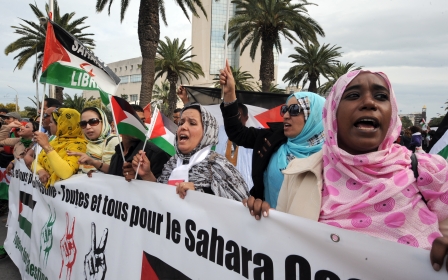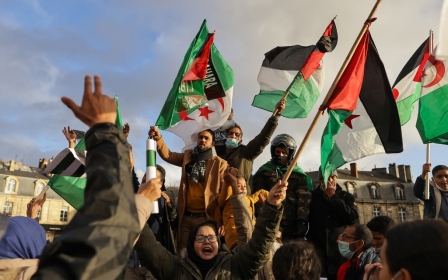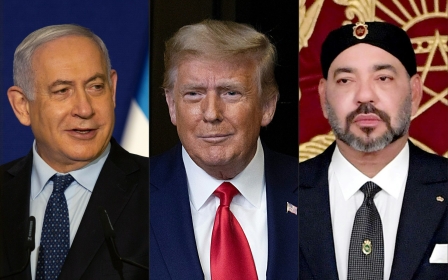Moroccan authorities prevent protest against ties with Israel in Rabat
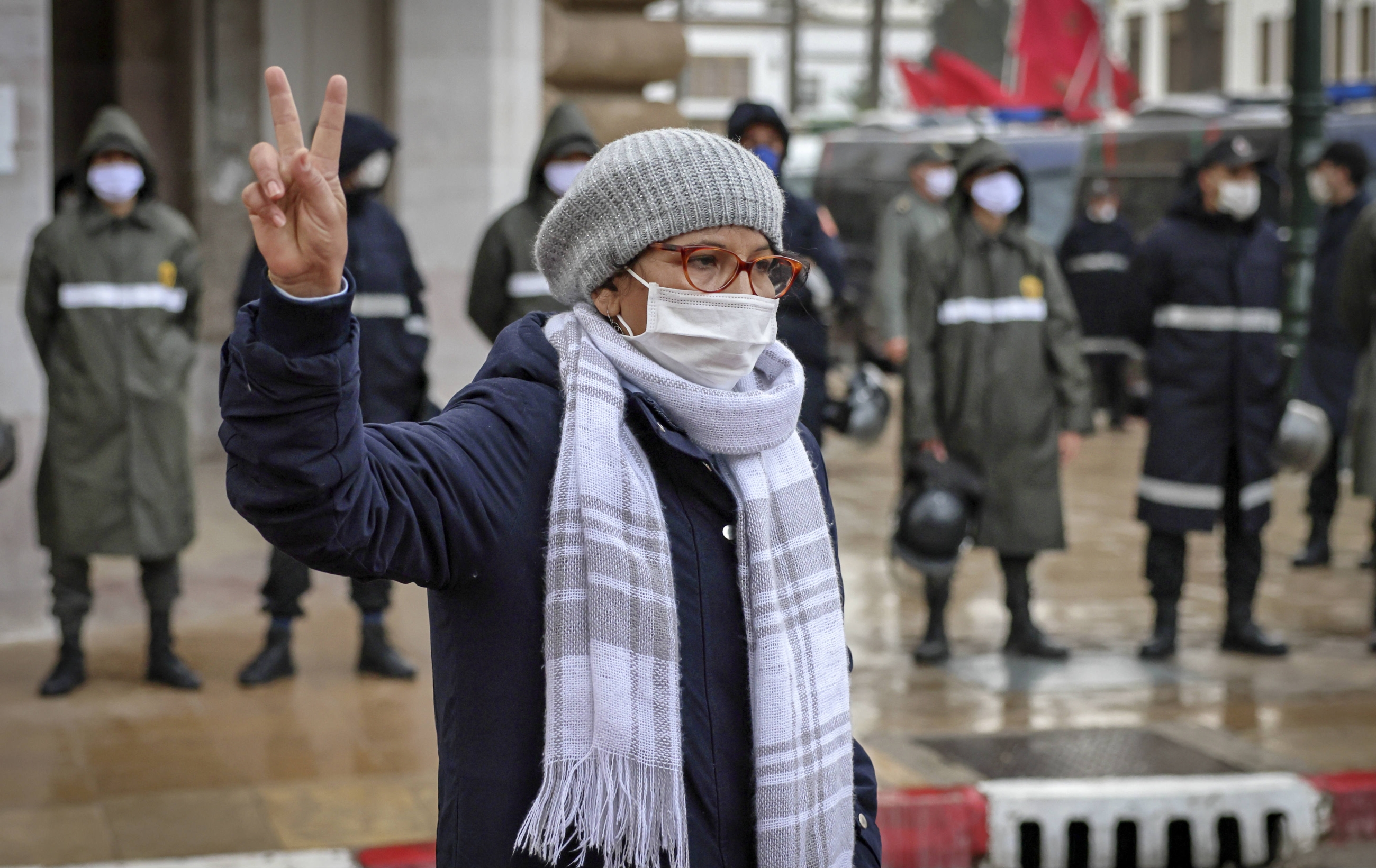
Moroccan authorities on Monday prevented a protest in the capital Rabat against the kingdom's move to normalise ties with Israel following a deal brokered by US President Donald Trump.
A heavy police presence backed by water cannons and anti-riot forces deployed in the main avenue leading to parliament square, where a group of pro-Palestinian rights organisations had planned the sit-in.
New MEE newsletter: Jerusalem Dispatch
Sign up to get the latest insights and analysis on Israel-Palestine, alongside Turkey Unpacked and other MEE newsletters
Police prevented demonstrators from reaching the square.
Two prominent activists, Sion Assidon, Morocco coordinator for the international Boycott, Divestment, Sanctions (BDS) movement, and lawyer Abderrahman Ben Amrou, were escorted away by authorities and asked to leave the area.
On Thursday, Morocco's King Mohammed VI announced that official bilateral ties and diplomatic relations with Israel were to be established “as soon as possible,” according to a statement issued by the royal court.
"Unfortunately, political normalisation... comes after a long process of economic, agricultural, tourism and academic ties," Assidon, a Moroccan Jew, told Reuters.
'Weak political position'
There are nearly one million Jews with Moroccan roots in Israel and last year 70,000 visited the kingdom, which recognises the Jewish community as a constituent of its national identity.
A local authority source said the protest was not authorised, citing a Covid-19 emergency decree.
Hassan Bennajeh, a leading member of the outlawed Adl Wal Ihssane, one of several organisations which called for the protest, said the ban reflected a "weak political position," saying that authorities had allowed a gathering in support of the deal in the same place on Sunday.
A core element of the deal was US recognition of Moroccan sovereignty over Western Sahara. A decades-old dispute over the territory has pitted Morocco against the Algeria-backed Polisario Front, which seeks to establish an independent state.
Washington also announced the opening of a US consulate in Dakhla, the second largest city in the Sahara region.
A rally was held on Saturday in Western Sahara’s largest city, Laayoune, by the opposition Istiqlal party, bringing together some 30,000 people in support of the deal.
Middle East Eye delivers independent and unrivalled coverage and analysis of the Middle East, North Africa and beyond. To learn more about republishing this content and the associated fees, please fill out this form. More about MEE can be found here.



